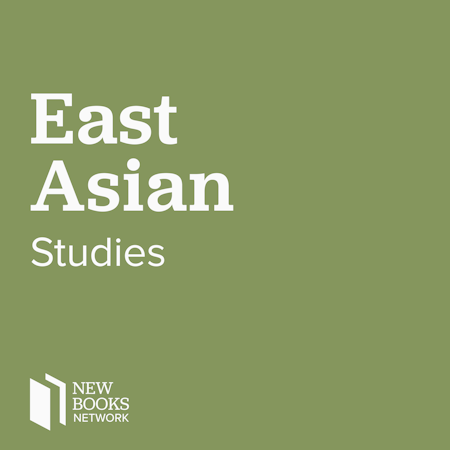
New Books in East Asian Studies
Interviews with Scholars of East Asia about their New Books
1176
Christina Yi, "Colonizing Language: Cultural Pr...
The fact that Korea’s experience of Japanese imperialism plays a role in present-day Japan-Korea relations is no secret to anyone
59 min
1177
Jeremy Black, "Imperial Legacies: The British E...
Professor Black shows the reader how criticisms of the legacy of the British Empire are, in part, criticisms of the reality of American power today.
44 min
1178
Pang Yang Huei, "Strait Rituals: China, Taiwan,...
The Taiwan Strait Crises of 1954-55 and 1958 occurred at the height of the Cold War...
54 min
1179
Pu Wang, "The Translatability of Revolution: Gu...
Wang's is the first study of the whole life of Guo Moruo, the ‘writer, poet, dramatist, Marxist historian, paleographer . . . revolutionist and cultural fighter.'
63 min
1180
Leta Hong Fincher, "Betraying Big Brother: The ...
Hong Fincher makes the case that the subjugation of women is a key component of the authoritarian state...
47 min
1181
Craig Benjamin, "Empires of Ancient Eurasia: Th...
In the late second century BCE, a series of trading route developed between China in the east and Rome’s empire in the west...
54 min
1182
Federico Varese, "Mafias on the Move: How Organ...
What's the connection between globalization and organized crime?
39 min
1183
Nancy Yunhwa Rao, "Chinatown Opera Theater in N...
The story of popular entertainment in American immigrant communities is only just beginning to be told...
55 min
1184
Levi S. Gibbs, "Song King: Connecting People, P...
How does music link people across time and space?
63 min
1185
Discussion of Massive Online Peer Review and Op...
In the information age, knowledge is power. Hence, facilitating the access to knowledge to wider publics empowers citizens and makes societies more democratic...
29 min
1186
Suk-Young Kim, "K-Pop Live: Fans, Idols, and Mu...
Given its expanding multimedia presence in Asia and around the world for many years now, K-pop is a phenomenon that is hard to ignore...
52 min
1187
Ian Johnson, "The Souls of China: The Return of...
Religion has returned to China. Really, it never left...
70 min
1188
Sayaka Chatani, "Nation-Empire: Ideology and Ru...
34 min
1189
Emily Baum, "The Invention of Madness: State, S...
Baum's book is a genealogy of “psychiatric modernity,” of the invention and reinvention of modern mental illness in Beijing, 1901-1937...
63 min
1190
Christine Loh, "Underground Front: The Chinese ...
There can be little doubt that Hong Kong has stood out as a particularly intense East Asian news hotspot in recent years...
55 min
1191
Christopher Goscha, "Vietnam: A New History" (B...
Goscha brilliantly paints a picture of an ancient, diverse, and complex country which had already begun to modernize before the arrival of the French...
42 min
1192
Alfredo Toro Hardy, "The Crossroads of Globaliz...
Alfredo Toro Hardy analyzes the leadership of China and the economic strength of Asia...
74 min
1193
Pema Tseden, "Enticement" (SUNY Press 2018)
66 min
1194
Jieun Baek, "North Korea's Hidden Revolution: H...
Based on interviews with North Koreans who have settled in the South, Baek shows how everything from television programs to foreign affairs coverage and fashion has made its way into the country from the outside world....
60 min
1195
Eiko Maruko Siniawer, "Waste: Consuming Postwar...
More than a history of garbage and waste disposal, Waste is a look at the aspirations and discontents of a rapidly changing society...
71 min
1196
Monica Kim, "The Interrogation Rooms of the Kor...
Monica Kim provides a fresh look at the Korean War with a people-centered approach that studies the experiences of prisoners of war...
58 min
1197
Andray Abrahamian, "North Korea and Myanmar: Di...
Abrahamian's work on each place is based on years of firsthand experience in these ‘outposts of tyranny’, as former-US Secretary of State Condoleeza Rice dubbed them in 2005...
61 min
1198
Jonathan Fulton, "China's Relations with the Gu...
Fulton’s book is a timely contribution to discussion of the changing global balance of power as Gulf states
62 min
1199
Van Jackson, "On the Brink: Trump, Kim, and The...
Jackson argues that the 2017 nuclear crisis was a product of a gradual hardening of U.S. policy towards North Korea...
52 min
1200
Derek Hird and Geng Song, "The Cosmopolitan Dre...
China’s global rise has been analysed from many perspectives in recent years...
65 min